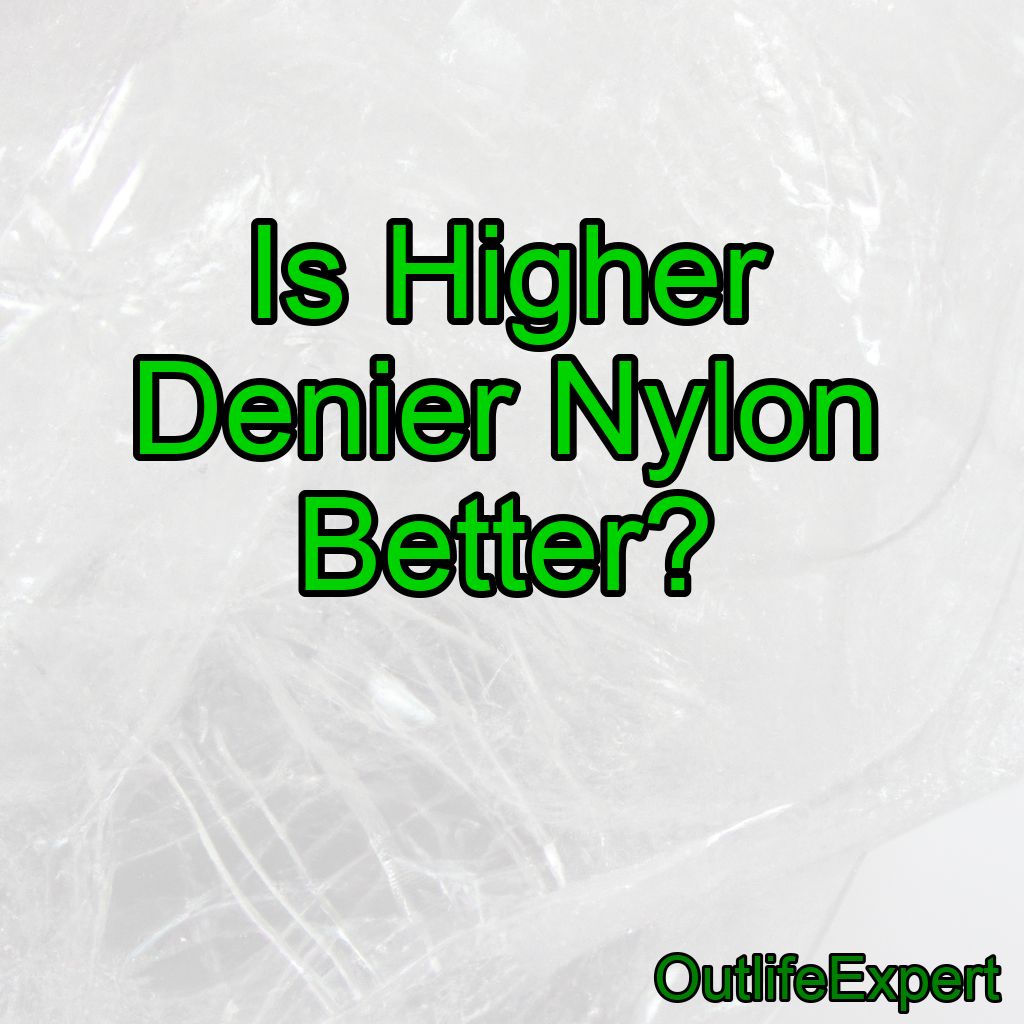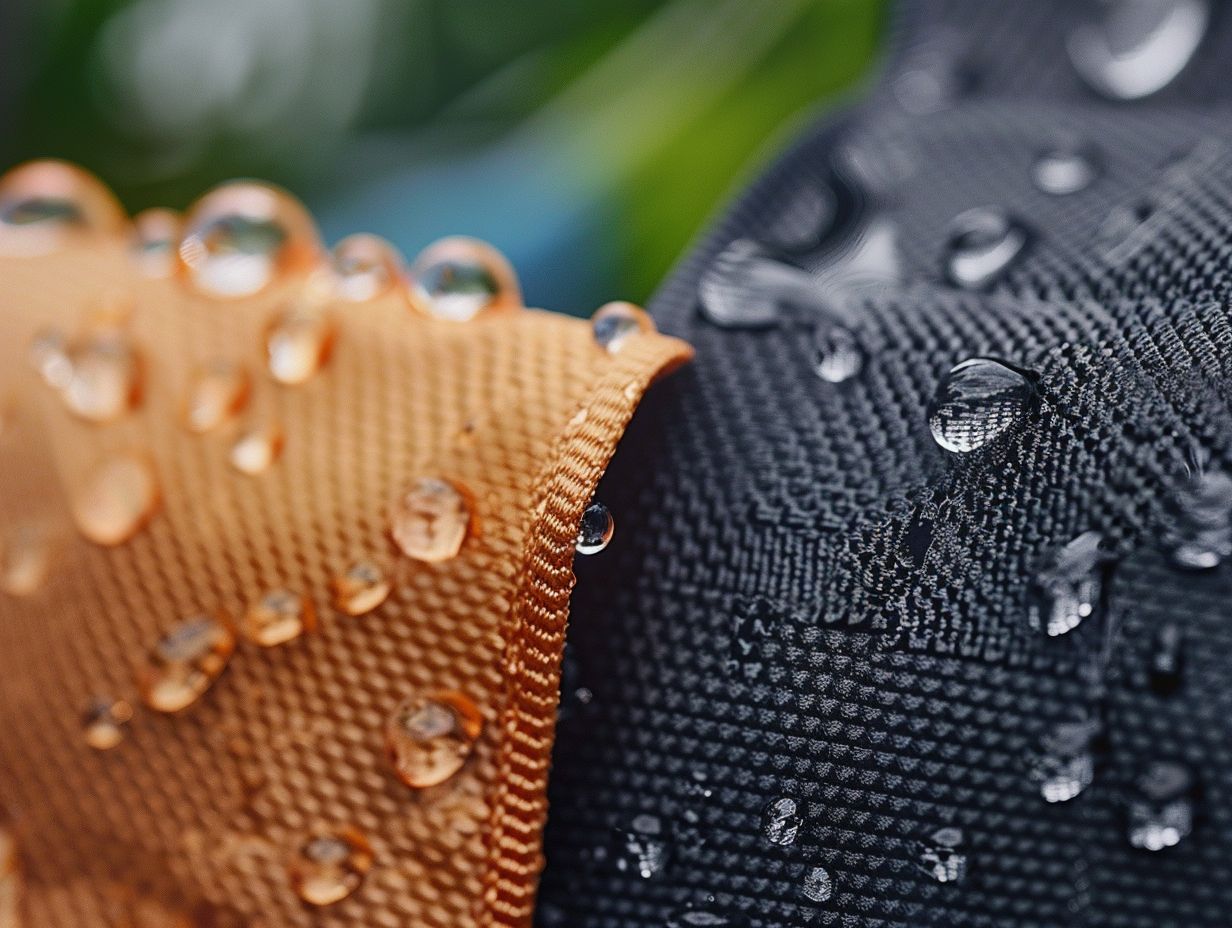When it comes to choosing the right fabric for your outdoor gear, luggage, or clothing, the term “Denier” often comes up. But what exactly is Denier, and is a higher Denier nylon better?In short, a higher Denier nylon is generally more durable and resistant to abrasion, but it may not always be the best choice depending on your specific needs.In this blog post, we’ll dive deep into the world of Denier nylon, discussing its benefits, drawbacks, and when it’s the best choice for your needs.
What is Denier?
The definition of Denier
Denier (D) is a unit of measurement that represents the linear mass density of fibers. It is the weight (in grams) of 9,000 meters of a specific fiber or yarn. In simpler terms, the higher the Denier count, the thicker and more robust the fibers are. Denier is commonly used to describe the thickness of nylon, polyester, and silk fabrics.
Denier and fabric durability
A higher Denier count generally indicates greater durability and resistance to abrasion. This is because thicker fibers provide more material to withstand wear and tear. However, it’s essential to note that a higher Denier does not always equate to better quality. Factors like fiber type, fabric construction, and finishing treatments can also significantly impact a fabric’s durability and performance.
Benefits of higher Denier nylon
Durability and abrasion resistance
As mentioned earlier, a higher Denier nylon typically offers more excellent durability and resistance to abrasion. This makes it an excellent choice for outdoor gear, such as backpacks, tents, and tarps, which are often subject to harsh conditions and rough handling.
Water resistance
Higher Denier fabrics are often more water-resistant than their lower Denier counterparts. This is due to the tighter weave and thicker fibers, which help prevent water from penetrating the fabric. Many high-Denier nylon fabrics also feature a water-resistant coating for additional protection against moisture.
Tear resistance
In addition to abrasion resistance, higher Denier nylon fabrics are also more resistant to tearing. This is especially important for outdoor gear like tents and tarps, which can be subject to strong winds and other forces that can cause fabric tears.
Drawbacks of higher Denier nylon
Heavier weight
One of the primary disadvantages of higher Denier nylon is its increased weight. Thicker fibers and tighter weaves result in a more substantial fabric, which may not be ideal for lightweight backpacking or other activities where minimizing weight is essential.
Reduced breathability
Higher Denier nylon fabrics tend to be less breathable than lower Denier fabrics due to their tighter weave. This can lead to reduced comfort in clothing or gear designed to be worn close to the body, as moisture and heat can become trapped against the skin.
Higher cost
As a general rule, higher Denier nylon fabrics are more expensive to produce than lower Denier fabrics. This is due to the increased material required and often more complex manufacturing processes. As a result, products made from higher Denier nylon tend to have a higher price tag.
How to choose the right Denier for your needs
Consider the intended use
When selecting the appropriate Denier for your needs, it’s essential to consider how the fabric will be used. If you need a durable, abrasion-resistant material for outdoor gear, a higher Denier nylon may be the best choice. However, if you’re looking for a lightweight, breathable fabric for clothing or gear that will be worn close to the body, a lower Denier nylon may be more suitable.
Balance durability and weight
In many cases, it’s essential to find a balance between durability and weight. For example, while a 1000D nylon backpack may offer excellent abrasion resistance, it may be too heavy for lightweight backpacking. In this case, a lower Denier fabric that still offers good durability, such as a 210D or 420D nylon, may be a better choice.
Look for additional features
In addition to Denier, consider other factors that may impact the fabric’s performance, such as water resistance, UV resistance, and tear strength. These features can help you choose the best fabric for your specific needs, regardless of the Denier count.
Conclusion
Is higher Denier nylon better? Ultimately, it depends on your specific needs and intended use.Higher Denier nylon offers increased durability, abrasion resistance, and water resistance, making it an excellent choice for outdoor gear and heavy-duty applications. However, it comes with drawbacks, such as increased weight and reduced breathability, which may not be ideal for all situations. When selecting the right Denier for your needs, consider factors such as intended use, desired durability, weight requirements, and additional fabric features.
10 facts about Denier nylon
1.Denieris a unit of measurement for the linear mass density of fibers.
2. Higher Denier counts indicatethicker fibersand often more durability.
3.Durabilityand abrasion resistance are some of the main benefits of higher Denier nylon.
4. Higher Denier nylon fabrics are often morewater-resistantthan lower Denier fabrics due to their tighter weave and thicker fibers.
5. High-Denier nylon is moretear-resistant, making it suitable for outdoor gear such as tents and tarps.
6.Weightis a significant drawback of higher Denier nylon due to the thicker fibers and tighter weave.
7. Higher Denier nylon fabrics tend to beless breathablethan lower Denier fabrics.
8. Products made from higher Denier nylon often come with ahigher price tagdue to increased production costs.
9. When choosing the right Denier, consider factors such asintended use, durability, weight, and additional fabric features.
10. The best Denier for your needs will depend on your specific requirements and intended use, so it’s essential toevaluate each fabricbased on its unique properties.
FAQs
What does 20 denier nylon mean?
- denier nylon refers to the thickness of the individual fibers used to create the nylon fabric. Specifically, it means that 9,000 meters of the nylon fiber weigh 20 grams. The lower the denier number, the finer and more lightweight the fabric will be.
What are the denier nylon grades?
Denier is a unit of measurement used to describe the thickness or weight of a fabric. Nylon denier grades range from 70D to 1680D, with higher numbers indicating a thicker and heavier fabric.
Which is more strong nylon or polyester?
It depends on the specific application and use. Nylon is generally stronger and more durable than polyester, but polyester is more resistant to UV rays and moisture.
Which bag material is best nylon or polyester?
Both nylon and polyester have their own advantages and disadvantages. Nylon is stronger and more durable, while polyester is more resistant to UV rays and water. The choice between the two depends on the specific use and personal preference.
Is 20 denier strong?
No, 20 denier is not considered strong. It is a relatively lightweight and delicate fabric, often used for sheer or lightweight garments such as hosiery or lingerie.
Is 420 denier nylon better than 600 denier polyester?
It depends on the specific use and requirements of the material. Both 420 denier nylon and 600 denier polyester have their own unique properties and advantages. Nylon is generally more durable and abrasion-resistant, while polyester is more resistant to UV rays and water. Ultimately, the choice between the two will depend on the intended use and specific needs of the material.





